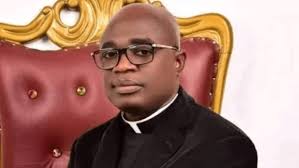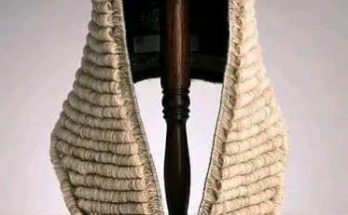Recently, Mustapha Lecky, the South-south Commissioner, Independent National Electoral Commission, says the commission would redesign the structures of all polling units to curb vote-buying during the 2019 general elections.
KEHINDE OSASONA writes
Jonathan, Oshiomhole’s back-lash The vexatious issue of ‘vote-buying’ has generated a fuss and counter-accusations between former President Goodluck Jonathan and National Chairman of the All Progressives Congress, Adams Oshiomhole who took on each other in defense of their respective parties.
Oshiomhole drew the first blood when he accused the Jonathan-led Peoples Democratic Party government of starting ‘vote- buying,’ a statement that did not go down well with the ex-president.
Absolving his party of any blame in the electoral misconduct, Oshiomhole claimed Jonathan started it all during the 2015 general elections “where he churned out naira and dollars.” According to him, “in Edo state where I participated, I was still governor at the time, they churned out not just naira, they churned out dollars.
President Jonathan started this massive vote-buying in Nigeria and the media must playback and do proper interview and investigation to discover the origin of vote-buying.” And in a quick reaction, Jonathan questioned the psychological state of the APC leader.
Jonathan, who spoke through his media aide, Ikechukwu Eze, described the former governor’s remark as “misleading falsehood.” He rather accused him (Oshiomhole) of introducing the vote-buying trend during his stint as Edo governor in 2016.
According to him, the APC chieftain is “suffering from multiple personality syndrome, and has a Jekyll and Hyde Schizophrenia,” citing the pressure of new office as reasons Oshiomhole’s keeps ‘flipflopping.
Standpoint Shortly after the Ekiti state election which was characterised by vote-buying, three Civil Society Organizations namely; Transparency International, (TI) the SocioEconomic Right and Accountability Project; (SERAP) and the Transition Monitoring Group, (TMG) strongly condemned what transpired during the exercise, and working towards preventing future recurrence.
The groups, had, during a chat with newsmen, collectively resolved to fight vote-buying to a standstill, saying it had endangered the country’s democracy and could affect the credibility of future elections.
While condemning the monetization of the election, TI and SERAP advised political parties not satisfied with the results, not to resort to violence but seek redress at the tribunal.
According to Head of TI Nigeria, Musa Rafsanjani, “There have been allegations against both the APC and the PDP of financial inducements of voters.
“This is a very fundamental problem of the electoral system in the country which political parties and politicians have promoted.
This will affect the credibility of the elections.
This allegation is not peculiar to only these parties; it is done by all the political parties.
The electorate must not allow themselves to be used for money politics,” Asserting further, he said, “the truth of the matter is that Ekiti election started with a lot of uncertainties.
There was a lot of insensible politics which made the runoff to the election look like a war.” Also, the SERAP Director, Adetokunbo Mumuni, said the monetisation of the electoral process had been in the country for a long time.
He stated: “Let whoever is dissatisfied with the process take the appropriate steps which is to go before the court and try to upturn the election results, but something must be done about the monetisation of the electoral process.
It is showing us in a bad light in the view of the international and domestic observers who witnessed the election.” Furthermore, a coalition of over 400 CSOs, under the aegis of the TMG, believed there was a systemic case of votebuying and financial inducement of voters in the election.
In a statement by its chairperson, Dr.
Abiola Akiyode-Afolabi, the group specifically expressed concern over the massive deployment of security agencies and personnel in the election, saying that Nigeria should be working towards a lesspoliced electoral process in subsequent elections to avoid intimidation and voter apathy.
INEC’s headache etal Expectedly, the Chairman, Independent National Electoral Commission (INEC), Mahmud Yakubu, while putting up a defence recently at a Public Presentation of 2018 Ekiti Governorship Election Observation Report by Election Monitors, and CSOs in Abuja, said cases of votebuying were increasing in elections in the country because its (INEC) administrative process could not be subverted.
Represented by May Agbamuche-Mbu, National Commissioner and Head of Legal Service of INEC, Yakubu maintained that the Ekiti election was being plagued by allegations of vote-buying.
He said, “There are several provisions of the Electoral Act 2010 (as amended), criminalising bribery and corruption relating to voting during elections, including Sections 124, 126, 129 and 130.
“INEC has continued to perfect its processes and has closed all loopholes.
Results cannot now be written and neither can ballot boxes be gainfully snatched as the results will automatically be cancelled.
“Our own administrative processes can no longer be subverted.
Vote-buying therefore, is the only way to subvert the integrity of an election.” According to Yakubu, by virtue of Section 150(2) of the Electoral Act 2010 (as amended), it is the responsibility of INEC to prosecute electoral offenders.
He said it included those involved in the act of buying and selling of votes as well as announcement of false election results.
He however added that INEC lacked the power of investigation and arrest.
Curbing the rising phenomenon Curbing the rising phenomenon, Yakubu said, “The commission was deeply concerned about the rising phenomenon of vote-buying during elections and was determined to continue to work with all stakeholders to curb it.
“Indeed, as part of this process and in conjunction with the European Union Centre for Electoral Support (ECES), INEC legal officers across the country with police officers will be trained.
“The over three months training will be on prosecution of electoral offences.
We will also intensify voter education as this damaging trend has got to be stopped in its tracks.” Speaking in the same vein, recently, Mustapha Lecky, the South South Commissioner of INEC, revealed that the commission would redesign the structures of all polling units to curb vote-buying during the 2019 general election “We are taking measures to ensure that it would be difficult for political parties and their candidates to buy votes.
“We are going to re-design our polling area in such a way that people cannot exhibit their ballot and show it to people in order to collect money.
“So those kind of structural re-design of the polling area is what we are going to do,” he said.
Lecky therefore urged the media to expose political parties and candidates found engaging in the electoral malfeasance during the election, to enable INEC prosecute the culprits.
Police angle, way out Meanwhile, the Police Service Commission had in a statement by its spokesperson, Ikechukwu Ani, on its assessment of the poll, said its officials led by the Permanent Secretary, Musa Istifanus, revealed that there were few cases of disorder at some polling units.
The commission stated that the police and other security agencies nevertheless ensured that the election was peaceful.
“Our team monitored the conduct of police officers in 45 polling units in all the three senatorial zones of the state covering 14 out of the 16 local government areas of the state.
“However, the team received 35 complaints from the voters, party agents and observers through dedicated lines earlier circulated to both the electorate and party agents within Ekiti and outside the state.
“Some of the messages centred on vote -buying, financial inducement and restiveness in some polling units.
Specifically, there was a case of the arrest and detention of party agents at Aramoko Police Division which was resolved with the intervention of the commission.” Going forward, stakeholders in the Nigeria project want INEC to decongest its polling unit by creating voting points not far away from the major polling units as a way of checkmating vote-buying.
They also say that the National Assembly should endeavour to pass the bill on Election Offences Tribunal presently before members.
Blueprint gives you the latest Nigerian news in one place. Read the news behind the news on burning National issues, Kannywood, Videos and the Military



